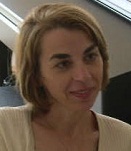
Plenary Lecture
Technology for Education in Sustainability - Network Knowledge and Interdisciplinary Curriculum

Professor Rossitsa Yalamova
Faculty of Management
University of Lethbridge
Canada
E-mail: rossitsa.yalamova@uleth.ca
Abstract: Education in Sustainability crosses disciplinary boundaries. Co-ordinated effort across Faculties and departments to deliver quality education for students on multidisciplinary curriculum creates difficult situations that can be facilitated by technology and network knowledge. The global socio-economic system in its determination for growth is challenged by problems arising from negative externalities and unintended consequences of human activities in every sphere of their existence interwoven in a complex dynamical system. It is evident that growth not only entails social and political costs, but may lead to catastrophic consequences as we approach not only physical, but also ecological, biological, cultural limits. From Aurelio Peccei to Al Gore the urgency to act has been clearly elucidated and courses of action discussed. But even as we try through technology to improve the carrying capacity of the planet, we must be aware that complexity and self-organization in the system means that tiny initiating events can lead to avalanches of unintended consequences that could precipitate an overall collapse of the system. In this sense addressing the issue of growth requires an understanding of the topology and dynamics of the whole complex system. As Peccei noted in the 1970s, management of change, management of interdependence, and management of complexity are all crucial for maintaining sustainable growth at a dynamic equilibrium “to survive and to acquire a better quality of life in the age of man's empire.” We seek to develop integrative curriculum to educate professionals ready to overcome these challenges as we move towards sustainable development. Focusing on what are realistically achievable, effective integrative strategies must arise from a comprehensive understanding of the social, economic, and environmental educational objectives. Fully integrating these objectives must come with the realization of trade-offs and a process that has continuous improvement as its principle. Ultimately, any integrative strategic process must have a high-level of commitment and effective participation from all levels.
Brief Biography of the Speaker: ROSSITSA M. YALAMOVA is an associate professor of Finance at the University of Lethbridge in Alberta, Canada. She holds a Ph.D. in finance from Kent State University and MD from Saint Petersburg State Medical Academy, Russia. Her research has been published in The Journal of Behavioral Finance, Fractals, Investment Management and Financial Innovations, International Research Journal of Finance and Economics, and the Asian Academy of Management Journal of Accounting & Finance. She is interested in market crashes, non-linear dynamics, and dialectical approach to financial economics theory, complex networks and chaos. She was a visiting professor in the Facolta di Scienze Economiche, Universita della Svizzera Italiana, Lugano, Switzerland in 2009/10. Dr. Yalamova participated in 2011 Global Sustainability Summer School in Brunei and 2012 Adaptive Economic Dynamics Summer School in Trento, Italy. Dr. Yalamova extended her research agenda to global sustainability problems. She has also added her research expertise in natural sciences to establish collaborations among researchers in different areas of sustainability. My goal is to encourage system thinking and collaborative effort not only in finding solutions to the complex problems inflicted by the rapidly diminishing carrying capacity of the Earth, but also the implementation of policies and practices that will foster sustainability in all aspects of human activity.